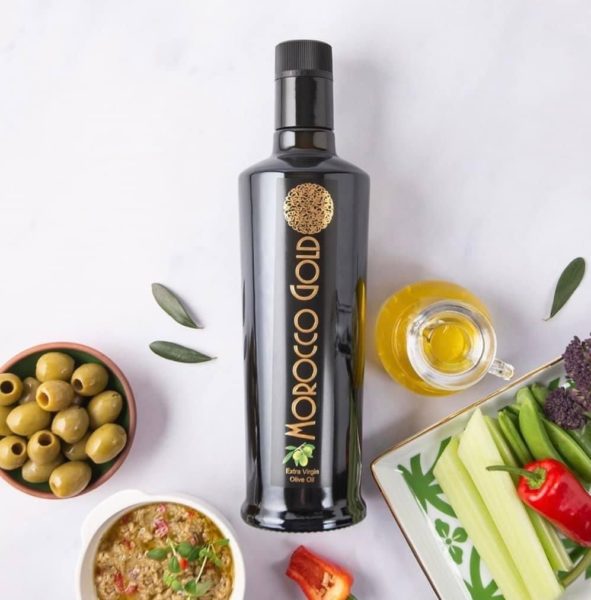Why Following The Mediterranean Diet Can Benefit Our Pets Too
Updated December 11th 2023

Summary:
- Including extra virgin olive oil in your dog’s diet can benefit their health and wellbeing.
- Extra virgin olive oil can improve the health of your dog’s skin, weight, taste and immune system.
- Extra virgin olive oil can help senior dogs stay agile and flexible.
- Extra virgin olive oil should be introduced to your dog’s diet following consultation with your veterinarian and measured according to their weight.
- The polyphenols in extra virgin olive oil can help reduce inflammation in dogs, as it can with humans.
Contents:
- Why We Should Include Extra Virgin Olive Oil In Our Dog’s Diet
- How To Introduce Extra Virgin Olive Oil To Our Dog’s Diet
- Extra Virgin Olive Oil Polyphenols For Dogs
- Measure Olive Oil Quantity According To Dog’s Body Weight
Most of us know that extra virgin olive oil is an extremely healthy option for our own diets, but did you know it can be beneficial for your dog’s health too?
In fact, many veterinarians around the world recommend extra virgin olive oil as a supplement in their pet’s diet. But why exactly should we give it to our pups and what are some of the potential health benefits associated with using this oil for our pets? Read on to find out all about how extra virgin olive oil can help keep your furry beloved companion in fighting shape – naturally!
Why We Should Include Extra Virgin Olive Oil In Our Dog’s Diet

According to Rover, a pet care services platform, olive oil helps your dog’s health in four ways: skin, weight, taste, and immune system.
And a report from Olive Oil Times shows how recent studies confirm that extra virgin olive oil prevents dry skin, soothes scaling skin, supports heart health, and reduces inflammation. It says:
‘For senior dogs, these can be life-changing benefits to help dogs stay agile, flexible, and active.
The benefits of extra virgin olive oil include its ability to promote healthy skin, ease itching associated with allergies and reduce inflammation.’
Christopher Reeder, a board-certified dermatologist at BluePearl Veterinary Partners in Franklin, Tennessee, told Chewy that the luster and shine in dogs’ coats could be observed after about 30 days of dietary olive oil supplementation.
How To Introduce Extra Virgin Olive Oil To Our Dog’s Diet
While olive oil has plenty of benefits for dogs, putting it on their skin may not be the best way to go. Dogs will likely just lick it off! Instead, try adding a teaspoon of olive oil to their food. It’s an easy way to give them the benefits of olive oil without the fuss.
Additionally, small amounts of olive oil can help maintain your dog’s ideal body weight. However, it’s important to note that if your dog is experiencing intestinal issues such as diarrhea or vomiting, it’s best to avoid giving them olive oil. Always consult with your veterinarian before making any changes to your dog’s diet.
According to the Spanish Olive Oil Interprofessional, a non-profit, olive oil helps prevent heart disease and reduce the risks of diabetes in dogs. Olive oil consumption also boosts dogs’ energy and helps prevent cellular oxidation.
Olive oil can boost immune functioning and help prevent or delay cognitive decline. Key antioxidants such as Vitamin E protect cell membranes from free radical damage. Dogster, a magazine, notes that olive oil is especially beneficial for senior dogs and can help keep their minds vibrant.
Extra Virgin Olive Oil Polyphenols For Dogs
Polyphenols are naturally occurring compounds found in extra virgin olive oil, which offer numerous health benefits for humans and dogs alike. The polyphenols in extra virgin olive oil act as an antioxidant which means that these compounds minimize free radicals in the body. Antioxidants affect the human health in various way from improving body functions and digestion to skincare. Antioxidants can also fight off cell damage in the body, enhancing the body’s capability to fight off any diseases.
While there are many pharmaceutical options available to help reduce inflammation, there are also dietary choices that can make a difference. If you’re concerned about inflammation, you might want to consider adding extra virgin olive oil to your diet. This healthy fat has been shown to reduce inflammation in a number of studies. Plus, it’s delicious and can be used in a variety of recipes. Here’s what you need to know about using extra virgin olive oil to reduce inflammation.
Inflammation is a natural response to potential dangers and damage to organs in our body, however it can become self-perpetuating leading to long-term problems. There are 2 types of inflammatory diseases, acute and chronic. Poor diet can contribute to long-term chronic inflammatory diseases and poor dog’s health.
A healthy diet, like the Mediterranean diet, including extra virgin olive oil like Morocco Gold can help combat inflammatory diseases. The polyphenols Oleouropein Aglycone and Oleocanthal within extra virgin olive oil help to combat inflammatory diseases Morocco Gold extra virgin olive oil is rich in both of these polyphenols.
Polyphenols have been linked to enhanced cognitive function in dogs, potentially improving memory, learning, and overall brain health.
Always consult with a veterinarian before making any dietary changes or introducing supplements to ensure they are safe and appropriate for your dog.
Measure Olive Oil Quantity According To Dog’s Body Weight
The Chewy report recommends extra virgin olive oil due to its low acidity and rich nutrient contents. However, a holistic veterinarian and report author, Judy Morgan, suggests no more than one teaspoon of olive oil for 20 pounds (9 kilograms) of body weight per meal.
According to the Spanish Olive Oil Interprofessional, a tablespoon of olive oil once or twice weekly is the typical amount to add to your dog’s food.
